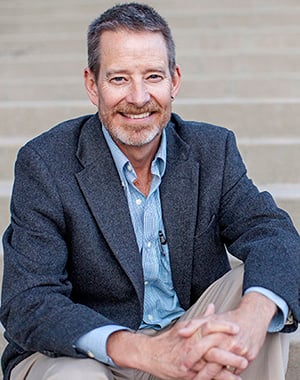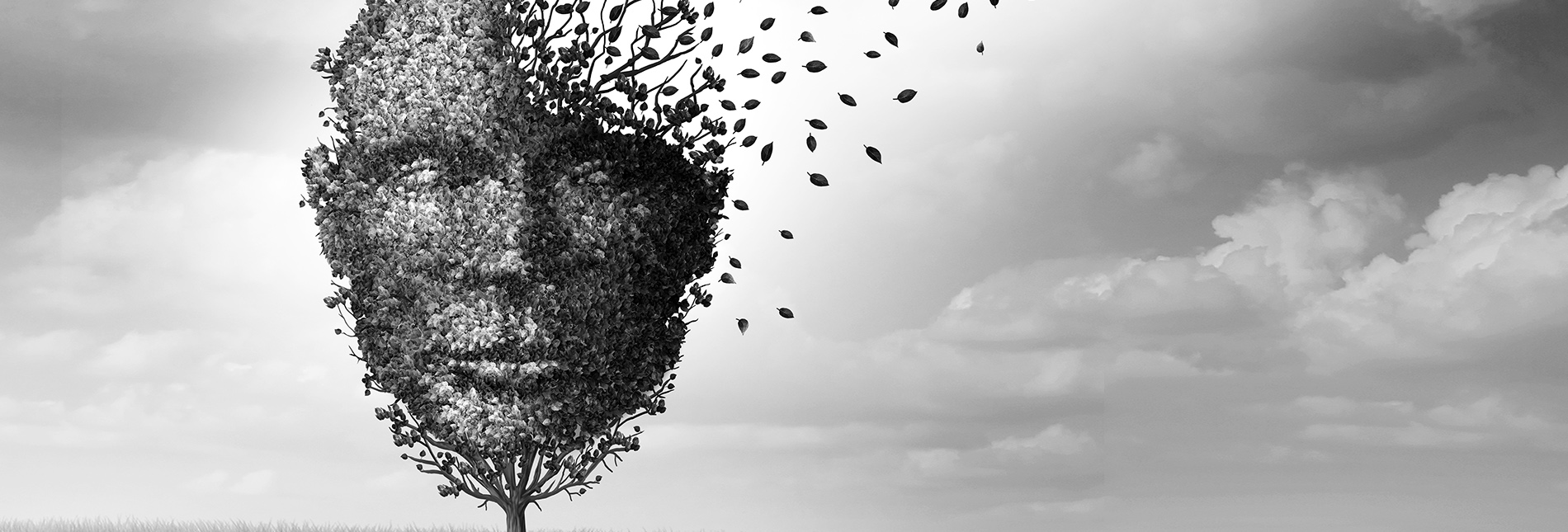Experts on the University of Colorado Anschutz Medical Campus are bracing for a predicted next wave of the COVID-19 pandemic – a mental health crisis. In anticipation of the surge, mental health providers are casting a wide net of support resources to the multitudes whose lives have been upended in unprecedented ways.
Some of the most vulnerable include healthcare professionals, families, the economically distressed and people with pre-existing mental health issues.
Brook Griese
“People with cumulative trauma and loss are particularly vulnerable,” said Brook Griese, PhD, co-founder of the local family bereavement nonprofit, Judi’s House/JAG Institute, and assistant clinical professor in the Department of Family Medicine in the CU School of Medicine. “We are surrounded by triggers right now. Every time we turn on the news, there are grief and loss triggers.”
In an engaging discussion (see full video below) that touched on myriad aspects of mental health – including what can be learned from Colorado's iconic aspen trees – Griese joined a panel of mental health experts at a recent Department of Medicine Grand Rounds through the School of Medicine at CU Anschutz. Other panelists included Neill Epperson, MD, Robert Freedman Endowed Professor and chair of the CU Department of Psychiatry; Steven Berkowitz, MD, professor and director of the START Center in the Department of Psychiatry; and Charles Benight, PhD, professor of psychology and director of the National Institute for Human Resilience at the University of Colorado Colorado Springs.
Comparisons to Spanish Flu
Berkowitz drew a comparison between the 1918 Spanish Flu and the current pandemic. Although little mental health data exists about the 1918 pandemic, a large asylum in Norway recorded a seven-fold increase in admissions in the six years following the crisis.
In the COVID-19 pandemic, he said, a couple mental health studies in China have shown increased frequency of depression, anxiety and stress among those surveyed. A study focused on hospital staff showed a “dramatic increase in depressive symptoms.”
So far in the United States, “what we’re hearing from healthcare providers is they’re experiencing increased worry and anxiety, low mood, feeling like they’re never rested. We’re hearing a lot about sleep disturbance,” Berkowitz said. “Another concern is increased use of alcohol and THC.”
Vulnerable populations especially at risk
Benight said it’s important to put extra emphasis on people who had pre-COVID-19 vulnerabilities. “We’ve had marginalized populations that had high levels of stress and trauma coming into this, and we’re seeing that these populations are also more directly affected by COVID in terms of death rates,” he said. “Also, the psycho-social and economic effects in these communities are intensified in comparison to some of the more affluent communities.”
Neill Epperson
Epperson noted some of the ways the Department of Psychiatry is offering support through the crisis. They include a COVID-19 Support page on its website; a Well-Being Support Line (303-724-2500), offering support and resources for mental health and resiliency; a new “Mind the Brain” podcast; and team support sessions for healthcare professionals in the UCHealth system. Helen Coons, PhD, is leading the latter effort, which has provided more than 62 sessions and over 400 participants, with some returning for ongoing sessions.
Some acute mental healthcare services available at CU Anschutz include:
- UCH-Department of Psychiatry Outpatient Clinic: 303-724-1000
- Department of Psychiatry Faculty Practice: 303-724-4987
- Student and Resident Mental Health: 303-724-4716
- CU Helen and Arthur E. Johnson Depression Center: 303-724-4975
Later in May, which is National Mental Health Month, the Department of Psychiatry plans to announce a new service geared to CU Anschutz faculty and staff, allowing them to be seen more quickly for mental health services.
Epperson said the “worst kind of stress is unpredictable stress, so the unpredictability here has been quite a source of concern.”
What can we learn from aspen trees?
People should be taking stock of their own mental health, while healthcare workers should be attuned to the mental health of their patients, she said. “Seeking mental health care is not a sign of lack of resilience or not being able to cope,” Epperson said. “This is an incredibly unique time, and we want to make sure people are reaching out if they need help.”
Steven Berkowitz
Other topics of discussion included how the pandemic could leave those already struggling with burnout more vulnerable to deeper psychiatric problems; psychiatric health of children and families; the added importance of structuring social support and connectedness; ways to enhance mental health care access to rural communities, such as through telehealth; and the importance, especially among healthcare providers, to not minimize their own sense of loss, stress and grief during this time.
Griese noted that before the pandemic, our grief-avoidant society was already battling a youth suicide crisis as well as the opioid epidemic. Judi’s House/JAG Institute provides care to grieving children and their families free of charge, and offers education and resources for those supporting them.
She said it’s especially important to directly ask people about the losses they’re experiencing – of loved ones, of jobs, of celebrations and social connectedness – and to really listen. “Mostly, folks need to be heard and have that safety and true empathy and concrete support.”
Griese used aspen trees as an analogy, pointing out how they are actually one large organism connected underground.
“That’s what makes them stronger and more resilient and able to weather storms and adversity, much like the staff and faculty of a university – all of you have that power of connection,” she said.
Other resources:
National Institute for Human Resilience:
- GRIT – Greater Resilience Information Toolkit. The toolkit includes information specific to how to build resilience for the COVID-19 pandemic, but can apply to other events like natural disasters, violence, accidents or workplace experiences common for military members or first responders. The GRIT Resilience Support Coach training provides free opportunity for volunteers to sign up as a GRIT Coach to be a resource for support and education in the community. Individuals who need immediate help responding to COVID-19 are encouraged to reach out to the Colorado Crisis Services by calling 844-493-TALK (8255) or by texting “TALK” to 38255.
-

Charles Benight
My Resilience, a self-help web support system to help individuals deal with the challenges faced due to the COVID-19 pandemic.
CU Anschutz resources
- No matter what type of support you need through this pandemic, the CU Anschutz Department of Psychiatry Covid-19 Support page has it.
- The Student and Resident Mental Health team is here for students, residents and fellows. Call 303-724-4716 or email smhservice@ucdenver.edu.
- Faculty, clinicians, PRAs and staff can all call the Well-Being Support Line at 303-724-2500 for guidance and resources.
- The School of Medicine Resiliency and Wellness Council has a website focused on wellness resources with COVID-19 information for clinicians and students.
- The Anschutz Health and Wellness Center has created a new website full of resources, including at-home workouts, mindfulness reminders, fitness tips, recipes and more.
- The Population Mental Health and Wellbeing Program in ColoradoSPH offers a variety of resources on its
- The Center for Health, Work & Environment and its Health Links program have been hosting weekly webinars related to self-care and mental health (check out the “Health Links Town Halls series”).
Off-campus resources
- Healthier Colorado provides mental health, food assistance, utility support, childcare information and more. Call 720-515-3206.
- Mental Health Colorado offers free COVID-19 resources and links to mental health, substance use, grief, trauma and depression help. Call 720-208-2220.
- Colorado Crisis Services provides free confidential, professional mental health support by talk, text or chat 24/7. Call 844-493-8255 or text “TALK” to 38255.
- National Suicide Prevention Lifeline offers 24/7, free and confidential support for people in distress, and crisis resources for you or your loved ones. Call 800-273-8255.
- Judi’s House/JAG Institute supports grieving children and families through direct service, research and education. Call 720-941-0331.




.png)
.jpg)
